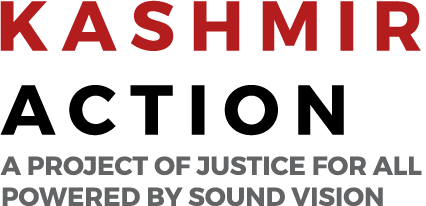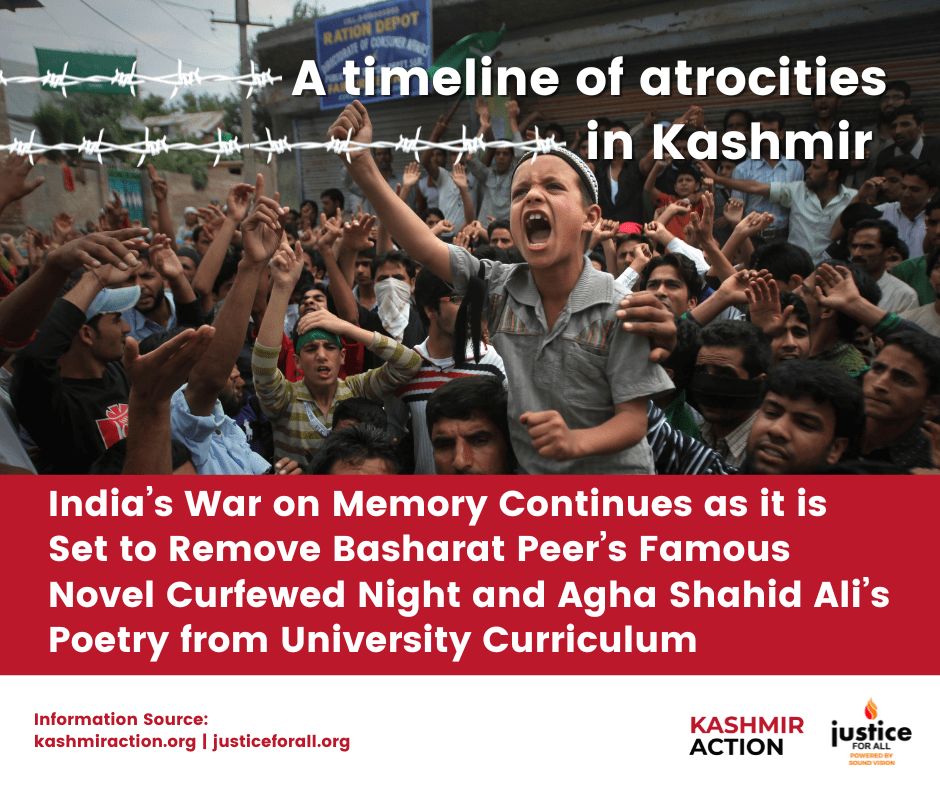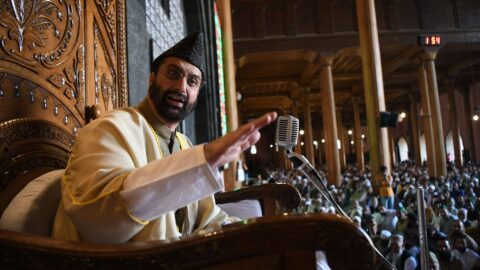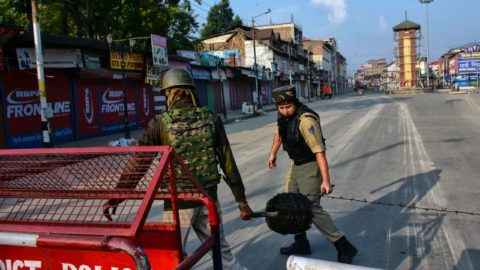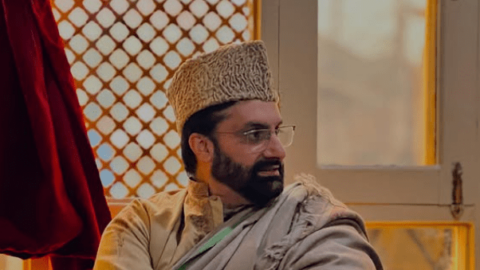On December 27th, Mirwaiz Muhammad Umar Farooq, was barred from leaving his house to lead…
India’s War on Memory Continues as it is Set to Remove Basharat Peer’s Famous Novel Curfewed Night and Agha Shahid Ali’s Poetry from University Curriculum
On 19th July, media reports raised an alarm as India is likely to remove globally appreciated literature of Kashmiri writer Agha Shahid Ali and novelist Basharat Peer’s Curfewed Night from the curriculum at University of Kashmir.
In a report by The Wire, The University of Kashmir (UoK), the Valley’s foremost higher-educational institution, has removed three poems by Kashmiri-American poet Agha Shahid Ali along with author and journalist Basharat Peer’s memoir from the curriculum of a post-graduate programme in English. Shahid’s famous poems – ‘Postcard from Kashmir’, ‘In Arabic’ and ‘The Last Saffron’ – and Peer’s Curfewed Night were taught in the third semester of the Masters of Arts (English) course at the university.
A similar decision to remove Shahid’s two poems, ‘I see Kashmir from New Delhi at Midnight’ and ‘Call me Ishmael Tonight,’ was made by the Cluster University Srinagar (CUS).
‘I See Kashmir from New Delhi at Midnight’ is one of the most memorable depictions of the people of Kashmir’s struggles. Torture, ‘bullet-torn’ bodies, and ‘curfewed evenings’ were recurring themes in the lives of Kashmiris, which the poem depicted.
Basharat Peer’s Curfewed Night, a memoir of growing up in the violent realities of everyday life in Kashmir, had received critical acclaim for drawing an unforgettable image of more than three decades of occupation in Kashmir.
Jammu and Kashmir’s Lieutenant Governor Manoj Sinha, a close ally and supporter of the Modi-led Hindu nationalist Bharatiya Janata Party, is the head of the university.
The Indian advisors on the education policy have said the expelled works are examples of “Resistance Literature”, which they claim promotes “secessionist mindset, aspiration and narrative” among students. It is clear that India uses education as a political tool and will only allow the literature that is statist and obfuscates the reality of life under occupation in Kashmir.
